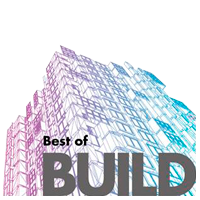Thanks to the internet, sites like Pinterest, and television programming like HGTV, homeowners have a greater grasp on what’s important and what they want than in previous generations. This means that to get their business, you’ll have to work not only harder, but smarter as well, which includes educating home buyers on the quality of your construction.
Why Educating Homeowners Matters
You have a lot to do, and oftentimes it may feel as though your work should speak for itself, so why take the additional time to educate home buyers on things like quality? It all comes down to the fact that many homeowners today are partially educated already. They’ve seen enough and learned enough to both have a grasp on what’s going on, and to know where they’re level of knowledge ends.
Because they already have that taste of knowledge and experience, however, most homeowners are not going to be satisfied with operating in the dark; they’re going to want more. This is going to be their home, after all, and they want to ensure that it’s going to be built to specific standards.
When you educate potential home buyers on the quality of your construction, you’re doing more than simply making a sale. You’re also: - Helping the home buyers to feel more comfortable both with you and with the process - Answering questions that they may have, but either don’t feel comfortable asking, or don’t have the basic understanding from which to ask - Showcasing what sets you above the competition, particularly in a world filled with new construction, myths surrounding both modular and stick building, and a widespread belief that current construction practices are not as good as though used in previous years
How to Educate Homeowners on Construction Quality
When it comes time to start educating home buyers, you have a lot of options on how to go about it, from waiting for them to ask questions to going into an in-depth study of the process. Your time is valuable, however, and not every homeowner will want to know every detail. So it’s important to focus on what’s important, and begin to establish trust and a rapport between you and the home buyer so they can come to you later with additional questions if necessary.
You may want to begin by explaining what makes your construction and building practices different from other builders in your area. If you use additional lumber, build certain sections modularly for quality control, or use specific materials that you’ve found to be of better quality or longevity, it’s important that you point these facts out. Home buyers may not always understand them, but they will understand your dedication to your craft, and they will be able to tell the difference between a builder that can take the time to explain his process and one that points only to the bottom line.
In addition, if you’ve come across studies that back up the longevity of your products, or you can offer things like a manufacturer’s extended warranty, these are facts to showcase. There is a big focus on value, and materials that can hold their value, with home buyers right now. Someone purchasing a new home wants to know that they won’t be replacing the roof or siding in the next few years, and that the value of the home is going to increase or at least hold steady for the length of time that they own it.
Finally, you may want to give home buyers an overview of your process and why you work the way that you do. This is what helps build trust with the potential buyers, because they feel that they’re getting an idea of how you work, your integrity, and what’s important to you. This trust will help them believe in the quality of your product, even when they can’t see the quality by looking at the surface of the home.
Putting some of this into writing with your contract is also a good idea. Mentioning those things such as the higher quality of the products or any extended warranties in writing will help back up your claims and help home buyers make up their minds in your favor.
Education Is Important
There’s a saying that sometimes a little knowledge can be dangerous. Unfortunately, with the large amounts of information that home buyers have access to, they need to have someone fill in their knowledge gaps for them before they are able to make that purchase. By taking the time to educate potential home buyers on the quality of your construction, you can help overcome these issues and ensure that you can continue to grow your business and build the types of homes you can be proud of.














